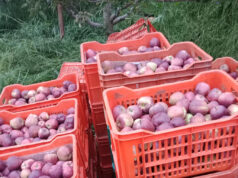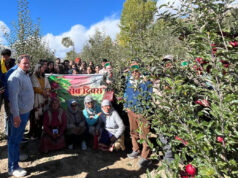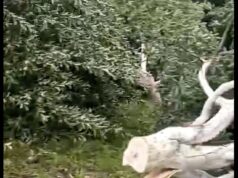In a proactive response to a looming threat, the Horticulture Department of Himachal Pradesh has heightened its vigilance against the potential invasion of the ‘Apple Leaf Blotch Miner’ disease. This menacing plant disease, which has wreaked havoc in the orchards of Kashmir, poses a serious risk to the thriving apple industry in Himachal.
The alert was triggered by reports of the devastating impact of the ‘Apple Leaf Blotch Minor’ in Shopian, Anantnag, and Pulwama districts of Kashmir, prompting swift action from the Plant Protection division of the Ministry of Agriculture and Farmers Welfare, Government of India. The advisory, issued to the Horticulture Department, emphasizes the urgency of preemptive measures to safeguard Himachal’s apple orchards.
While the disease has not yet infiltrated Himachal Pradesh, the fear is that it may be introduced through illegally imported apple saplings from Kashmir. The ‘Apple Leaf Blotch Minor’ is notorious for causing the withering and eventual death of plants, posing a significant threat to the state’s horticultural wealth.
Director Horticulture Department Vinay Singh issued a stern warning to apple growers, advising them to exercise caution and avoid planting saplings brought in from Kashmir or any other states. Singh highlighted the department’s commitment to enforcing the Himachal Pradesh Fruit Nursery Act 2015, taking strict measures against traders involved in the illegal import of potentially infected saplings.
In response to the alert, the Horticulture Department conducted surprise inspections across various regions, leading to the discovery and destruction of approximately one lakh illegally imported plants. This decisive action aims to prevent the spread of the ‘Apple Leaf Blotch Minor’ and protect Himachal’s apple orchards from potential devastation.
As a precautionary measure, apple growers are strongly advised to refrain from introducing external saplings, especially those from Kashmir, into their orchard. The potential economic losses and environmental impact of the disease make it imperative for the community to collaborate with the Horticulture Department in mitigating this imminent threat.












